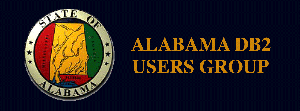
Okt. 29 / 2024 / 10:00 a.m. - 11:30 a.m. UTC-6

Online
Kai Stroh will be a guest speaker at the ADUG meeting giving a talk about SQL workloads, how to build a lightweight monitor to identify workload tuning potential, and how SQL monitors like SQL Quality Control can help.
He’ll explain how to capture SQL statistics from Db2’s dynamic statement cache and combine them with data from the EXPLAIN tables.
The code will even be available for download after the show!
You’ll learn to identify which queries benefit most from tuning, saving time by focusing on high-impact queries. He’ll cover basic metrics like RID list errors and expand to more complex metrics, including top consumers, I/O statistics, and lock contention. He’ll go over SQL monitors and how to track SQL statement performance over time, enabling you to identify trends. Lastly, he’ll address detecting access path changes in dynamic SQL workloads, a common issue. Using historical EXPLAIN data to spot these changes and act quickly, especially after events like RUNSTATS executions, which can alter Db2’s access path choices.
